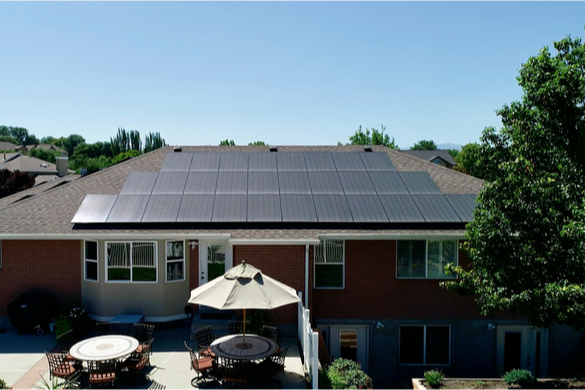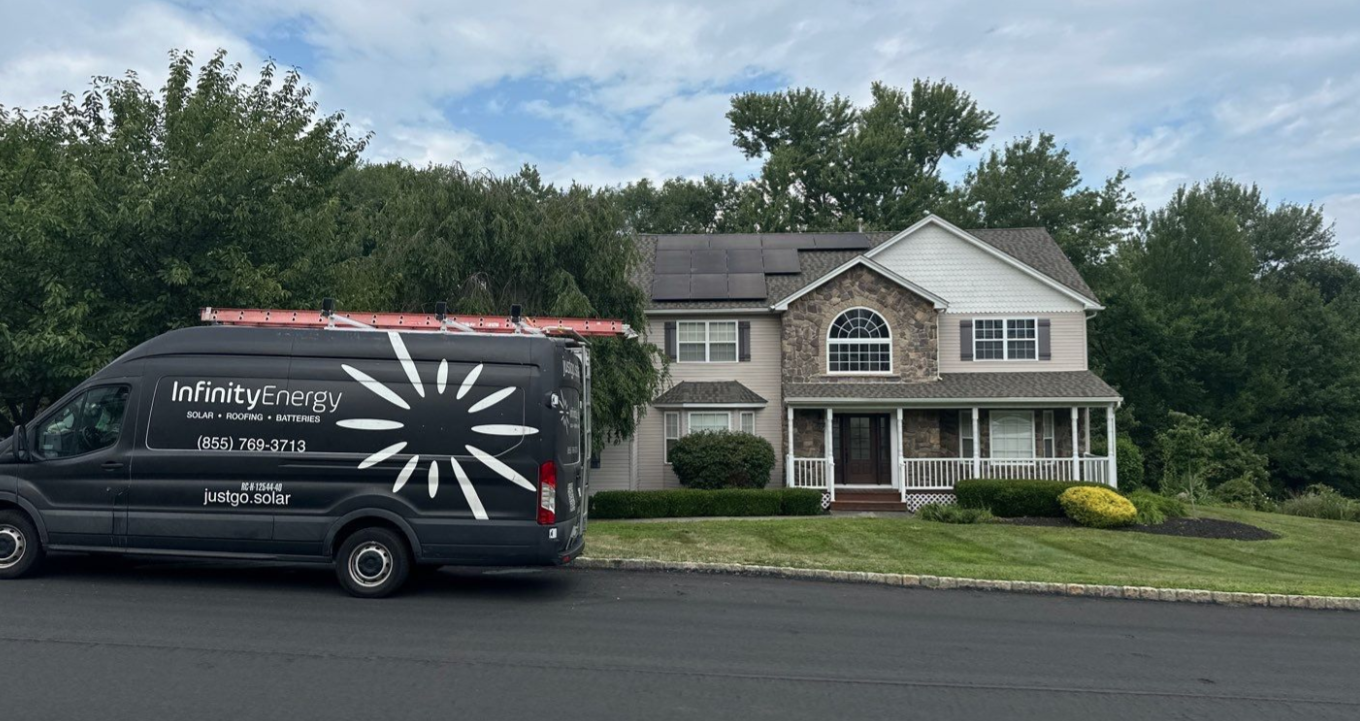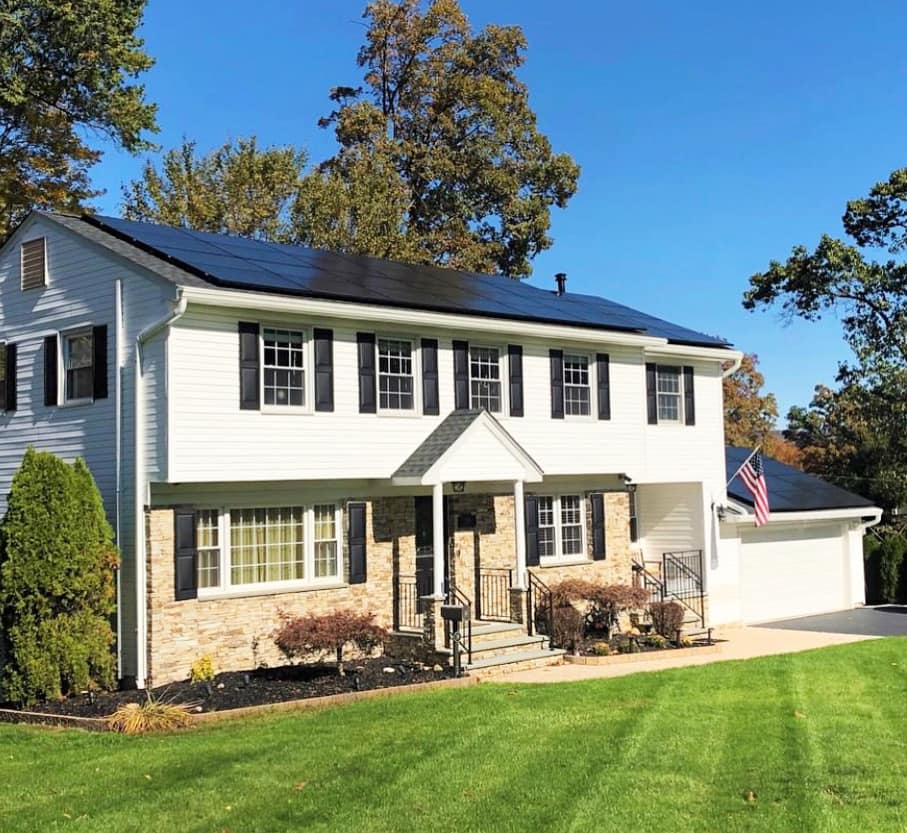There are several questions to ask when considering, “Is my house good for solar NJ?” Notably, solar panels can offer huge environmental benefits for homeowners looking to reduce their carbon footprint. Indeed, solar panels can reduce air pollution from fossil fuels and dependence on nonrenewable energy sources. In addition, solar systems provide significant electric cost savings as well. In some regions, New Jersey homeowners can save over $900 per year with solar power. As an NJ resident, you need to know what factors to consider to see if solar panels make sense for your home. This way, you can find out if you’re eligible for these cost savings and sustainability benefits. Read on to discover key questions to determine “Is my house good for solar NJ?”
How Much Is Your Energy Bill?
First, you need to consider how much your energy bill is to determine, “Is my home good for solar NJ?” Financially, solar panels typically make sense if your monthly energy bill is $75 or more. Since solar energy replaces utility power, solar contractors want their customers to see a return on their investment. To generate these returns, homeowners need to pay less for solar energy than they would pay for their usual utility bill. Importantly, $75 is the threshold where residential solar customers start to see cost savings. On average, New Jersey property owners pay over $100 for their monthly energy bills. Thus, many residents in the area are a great candidate for going solar. Indeed, you can reduce your energy bill significantly once your solar panels are connected to the grid. Of course, you can also add more solar panels to existing systems NJ as well. Definitely, consider how much your energy bill is to figure out, “Is my home good for solar NJ?”
Is Your Roof Suitable For Solar?
Next, it is essential to assess your roof when asking, “Is my house a good candidate for solar NJ?” Since solar panels last nearly 30 years, you should consider how old your roof is before your solar panel installation. If your rooftop is damaged, leaking, or near the end of its lifespan, you may want to consider replacing it before your installation. In addition, assess your roof’s material as well. Often, it’s easiest to install solar panels on asphalt shingles or concrete tile roofs. If you have a different kind of roof, look for a contractor with experience installing on your roof material. Of course, you should also consider the angle and shading of your rooftop. Ideally, you want adequate sun exposure and a roof tilt of 30 to 45 degrees. Fortunately, your solar panel installer can assess your roof during a site evaluation to determine if your home is a good fit. Absolutely, ask if your roof is suitable when considering if my house good for solar in NJ.
What Is Your Local Climate?
In addition, you should also evaluate your local climate when determining, “Is my house suitable for solar panels NJ?” Typically, New Jersey’s mild four-season climate is good to buy solar panels NJ year-round. Notably, solar panels can improve their energy output in the winter months when the temperatures are lower. Indeed, chillier temperatures tend to increase solar panel efficiency. Simultaneously, snow on the ground can reflect light and boost solar cell performance. Of course, you want to make sure that snow is not covering your panels during the winter. Fortunately, the angle of your solar panels should melt the snow faster to increase exposure. In summer months, many homeowners increase their solar energy production from longer days. Plus, the best solar contractors offer panels with high efficiency ratings to boost output. Definitely, local climate makes homes a good candidate for solar panels NJ year-round.
Do You Own Your Home?
Moreover, you should also consider whether or not you own your home when figuring out how to tell if your house is good for solar NJ. Typically, property owners must approve solar panels before the installation process can begin. If you are renting your home, you need to discuss solar panels with the owner of the apartment or townhouse. To encourage your landlord to back the installation, you could inform your landlord about the increased property value solar panels bring. If they plan to sell the home within the next few years, this could be an appealing factor. Additionally, landlords can obtain money from excess solar energy through New Jersey’s net metering program. They can also claim the tax write off on the solar panel system as well. If you own your home, you can talk to your solar panel installer about securing the proper building permits for installation. Certainly, home ownership is a major factor to consider as you assess, “Am I a good candidate for solar NJ?”
Do You Qualify For Incentives?
Furthermore, you should also consider if you qualify for incentives when asking, “Is solar good for my house NJ?” For example, many residents who purchase their solar panels qualify for the federal solar investment tax credit (ITC). With this program, you can access a 26% tax deduction on your installation cost. Notably, this incentive is set to go down to 22%. Therefore, it’s best to begin your solar installation before 2023 to maximize your savings. Importantly, customers who lease their solar panels are not eligible for these incentives. Thus, consider financing your solar system through a solar loan to take ownership of your panels and maximize your savings. Many homeowners can earn money back from their solar system through NJ’s TREC and upcoming NJ solar successor programs as well.
There are several questions to ask when considering, “Is my house good for solar NJ?” First, consider how much your energy bill is each month. Next, schedule a site evaluation to determine if your roof is suitable for solar. In addition, assess how NJ’s mild four-season climate is good for solar panels as well. Moreover, consider home ownership when making your decision. Furthermore, work with your solar panel contractor to apply for solar incentive programs.










